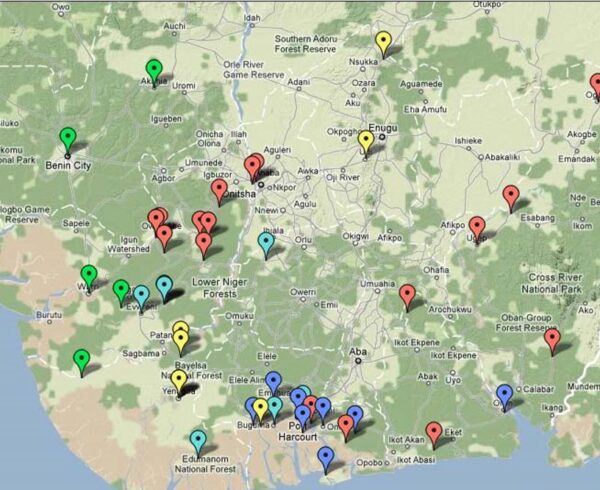There has been a decrease in conflict risk and lethal violence in the Niger Delta since Q4 2017, and the trend continues in Q1 2018 (See page 2). The conflict landscape remained largely unchanged in the first quarter of 2018, compared to the fourth quarter of 2017. According to data (www.p4p-nigerdelta.org), criminality, communal clashes and land disputes were the primary causes of lethal violence during the period.
This quarterly tracker looks at the trends and patterns of conflict risk factors and incidents of violence, and the related pressures on peace and stability at the regional, state and local levels. It is not designed as a conflict analysis, but rather it is intended to update stakeholders on patterns and trends in violence. Understanding the deeper conflict drivers, implications, and mitigating options requires a robust participatory, qualitative analysis of these trends by local stakeholders in affected communities, including women, traditional authorities, political leaders, youths, private sector actors, and others.
Conflict issues in the Niger Delta include organized criminality, communal tensions, political competition, and resource-based conflicts. Incidents include piracy, militancy, cultism, armed robbery, kidnapping, election violence, communal violence, land disputes, and mob violence. Data sources include ACLED (www.acleddata.com), Nigeria Watch (www.nigeriawatch.org), NSRP Sources (focused on Violence Against Women and Girls), CIEPD (https://ciepdcwc.crowdmap.com), the IPDU SMS early warning system, and others.




Leave a Comment